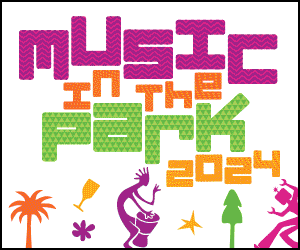 SLUG REPORT > Venus will soon pass in front of the sun
SLUG REPORT > Venus will soon pass in front of the sun
It’s been a busy couple of weeks in the world of astronomical events. First we had the partial solar eclipse on May 20, and now we’ve got Venus swooping in front of the sun on June 5. The transit of Venus in front of the sun is something not slated to occur again until 2117, so block out some time on June 5 to stare at the sun (using filters and common sense, of course).
A public viewing station will be set up at the Porter Wave sculpture, or the Porter “squiggle” as nearly everyone calls it, on the UC Santa Cruz campus. Telescopes equipped with the proper filters will be available at 3 p.m. Additionally, Lick Observatory will be hosting viewings from 2 – 8:30 p.m.
A series of lectures by UCSC professors and lecturers have been presented on campus, aimed at covering a variety of topics relevant to the upcoming transit. Ranging from the exploration of Venus via spacecraft to comparisons between life-supporting Earth and the acidic atmosphere of Venus, the talks focus on expanding public understanding of the importance of the event.
“What I would like by the end of the lecture is for the audience to get some sense that Venus has been transformed from a remote star-like object in the night sky to a real world that is ready to be explored,” says professor of astronomy and astrophysics Graeme Smith, who will give a lecture on the exploration of Venus on Friday, May 25.
There’s historical significance associated with the transit of Venus, as well.
“The transits [that occurred] in the 1700s allowed people to finally determine the true scale of the solar system,” says Francis Nimmo, professor of earth and planetary sciences, who will lecture on differences between Earth and Venus on June 1.
The opportunity to see a planet pass in front of the sun is a rare one, and it would definitely be worth taking an hour out of your Tuesday to have a look. Plus, it’s free, says astronomy physics lecturer Adriane Steinacker.
“Most rare things are also inevitably expensive and unaffordable,” says Steinacker. “Here is something rare, beautiful, and remarkably affordable for all of us.”













